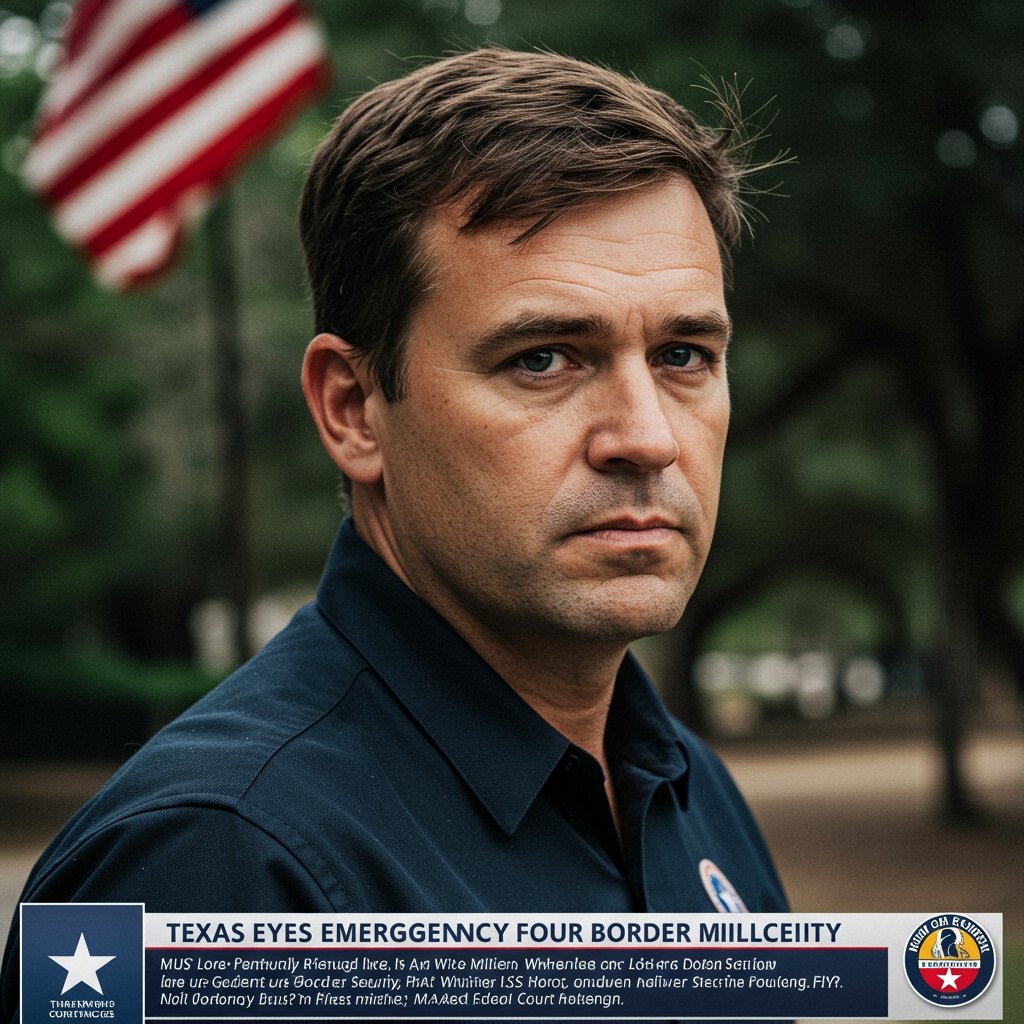Texas Lawmakers Scramble for Emergency Border Funding Amidst Legal Blows
AUSTIN, Texas — Senior legislative leaders in Texas are reportedly engaged in urgent discussions regarding potential emergency appropriations aimed at reinforcing the state’s multifaceted border security initiatives. These high-level talks, taking place in the state capital of Austin, involve key members of both the House and Senate appropriations committees, signaling the gravity and immediacy of the financial situation facing state-led border operations.
The catalyst for these expedited discussions is a recent federal court ruling that has partially limited certain state actions undertaken as part of Operation Lone Star, the state’s ongoing effort to address illegal immigration and drug smuggling along the Texas-Mexico border. While the specifics of the ruling and its exact operational impacts are still being assessed, the state government’s response indicates that the legal challenge has created an imperative to secure additional state funding to maintain or adjust their enforcement posture.
Sources close to the legislative process confirm that the focus of the appropriations committees’ discussions is on allocating potentially hundreds of millions of dollars. This substantial sum is being considered for a variety of uses, primarily centered on bolstering the physical and human infrastructure deployed along the border. Proposed expenditures reportedly include funds for additional personnel – likely encompassing state law enforcement officers, National Guard troops, or other state-funded operatives – as well as investments in technology and infrastructure projects.
The Operational and Financial Needs of Operation Lone Star
Operation Lone Star, launched in March 2021, involves the Texas Department of Public Safety (DPS) and the Texas Military Department working in tandem to deter and apprehend individuals attempting to cross the border illegally, as well as to combat related criminal activity. The operation has grown significantly in scope and cost since its inception, drawing both praise from supporters for its perceived effectiveness and criticism from opponents regarding its legality, cost, and humanitarian impact.
According to information from the Governor’s office and state agencies, Operation Lone Star’s expanded presence along the border was notably ramped up since April 26th. Maintaining this elevated level of deployment, which involves thousands of personnel and extensive logistical support, requires significant and sustained financial resources. The recent federal court ruling, by potentially altering the scope or methods of state operations, may necessitate adjustments that require unanticipated funding, or it may simply underscore the state’s determination to fund alternative or reinforced actions to compensate for any federally restricted activities.
Legislative sources indicate that the hundreds of millions being debated would be directed towards tangible assets and personnel on the ground. This could include funding for more state troopers patroling border areas, increased deployment of National Guard personnel under state command, acquisition of advanced surveillance technology such as drones, cameras, and sensors, and infrastructure enhancements like temporary barriers, fencing, or improvements to state-owned land along the border. The specific breakdown of how the funds would be allocated is still under negotiation, reflecting differing priorities and assessments of need among lawmakers.
Executive Branch Support and Potential Special Session
Governor Greg Abbott’s office has publicly and privately signaled strong support for securing the necessary funds to ensure Operation Lone Star can continue its operations despite the ongoing legal challenges. The Governor has been a vocal proponent of state-led border security efforts, arguing they are necessary to compensate for perceived inadequacies in federal border enforcement. His office’s indication of support for emergency appropriations reinforces the executive branch’s commitment to the operation and its desire to see legislative action taken swiftly.
A key point emphasized by Governor Abbott’s office is the need to maintain the expanded presence that has been in place since April 26th. This specific date highlights a particular phase or level of deployment that the state is keen to preserve, suggesting that any reduction or change enforced by the federal court ruling is viewed as a challenge that must be overcome through state resources.
The urgency of the situation is further underscored by suggestions emanating from sources close to the legislative discussions. These sources have indicated that a special session of the Texas Legislature might be considered if current funding levels, or funds available through standard budgetary maneuvers, prove insufficient to meet the operational demands and address potential shortfalls created by the legal constraints. Given that the Texas Legislature meets in regular session only biennially, an emergency appropriation requiring significant funds outside of the regular session calendar would typically necessitate a special call from the Governor.
The Political and Legal Backdrop
The debate over border security funding is highly charged politically in Texas. It is a top priority for state Republican leaders and resonates strongly with their base. The willingness to debate appropriations of hundreds of millions of dollars reflects the political significance attached to Operation Lone Star. However, it also raises questions about the long-term sustainability and cost-effectiveness of the state’s independent border security efforts, especially in light of ongoing legal battles that challenge the constitutional authority of a state to undertake actions typically reserved for the federal government.
The recent federal court ruling is not the only legal challenge Operation Lone Star faces, but it appears to be the most immediate trigger for the current funding discussions. The state has been involved in numerous legal skirmishes with the federal government and other entities over aspects of the operation, including the deployment of buoys in the Rio Grande and arrests of migrants on state trespass charges.
Ultimately, the outcome of these legislative discussions will determine the extent to which Texas can financially support its enhanced border security posture in the coming months. It will also signal the state’s resolve to continue its initiatives despite federal judicial oversight and legal challenges. The potential for a special session looms as a mechanism to unlock significant state funds, indicating the executive and legislative branches’ potential willingness to take extraordinary measures to finance Operation Lone Star’s continuation and adaptation in the face of evolving legal constraints.






